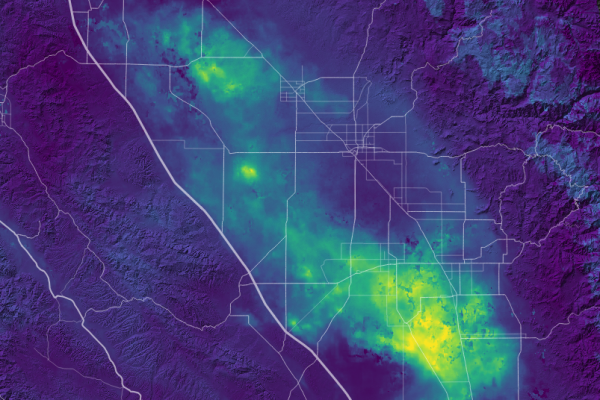Groundwater is the sole source of fresh water in a large proportion of inhabited land. The growing demand for fresh water has placed an excessive strain on the supply of this natural resource. The irreversible portion of the decline in the available groundwater volume is associated with fluid storage loss of the aquifer systems. Pore space compaction in aquifer rocks is the main mechanism of such storage loss. A mechanistically rigorous evaluation of porosity compaction due to groundwater depletion is herein proposed.
The research benefits from a combination of modeling, as well as satellite and field data analysis. The modeling effort relies on the theory of poromechanics to describe the coupling between reduction in pore water content and rock permanent deformation. The model will be tuned with long-term histories of land displacement to evaluate the irreversible portion of aquifer compaction below the ground surface. Available data on land subsidence in San Juaquin valley will be used for this purpose. Alongside, the Interferometric Synthetic Aperture Radar (InSAR) ground deformation data will be processed to constrain the subsidence zone and rates. This study enhances the knowledge of the mechanics and hydrology of aquifer rock systems, with tangible outcomes to improve the recommended protocols for sustainable groundwater use.




